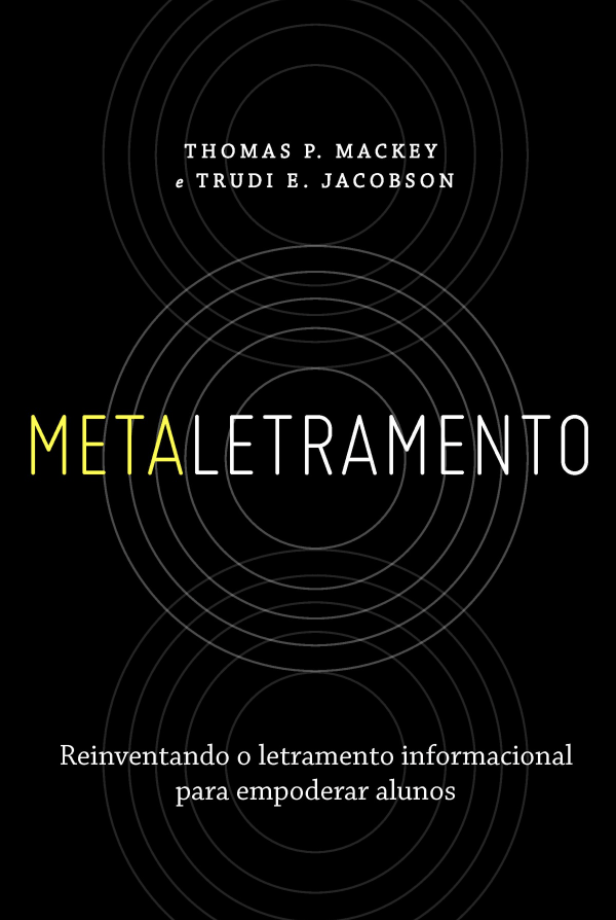In celebration of International Open Access Week 2020 (October 19-25), we highlight several metaliteracy resources that are fully open for researchers, teachers, librarians, and lifelong learners! We published our first article that introduced the metaliteracy model, Reframing Information Literacy as a Metaliteracy, in the open access journal College & Research Libraries. Since that time we have been committed to open scholarship and developing open learning resources and open access environments (including this blog!) to support metaliterate learners in practice. This is an overview of several open access resources to advance teaching with and learning with metaliteracy:
Open Scholarship
Trudi E. Jacobson, Thomas P. Mackey, and Kelsey L. O’Brien, “Developing Metaliterate Citizens: Designing and Delivering Enhanced Global Learning Opportunities.” Conference on Learning Information Literacy Across the Globe. Frankfurt am Main, May 10, 2019.
Kelsey L. O’Brien, Michele Forte, Thomas P. Mackey, and Trudi E. Jacobson, “Metaliteracy as Pedagogical Framework for Learner-Centered Design in Three MOOC Platforms: Connectivist, Coursera and Canvas.” Open Praxis, v.9 no. 3, 2017, pp. 267-286.
Trudi E. Jacobson. and Thomas P. Mackey, (2017) “Advancing Metaliteracy: A Celebration of UNESCO’s Global Media and Information Literacy Week.” Facet Publishing, October 27, 2017.
Thomas P. Mackey and Trudi Jacobson. “How Can We Learn to Reject Fake News in the Digital World?” The Conversation, December 5, 2016.
Trudi Jacobson and Thomas P. Mackey, “Can’t Seem to Stop those Ads Following You Around? Why Not Become Metaliterate?” The Conversation, August 7, 2015.
Thomas P. Mackey, Trudi E. Jacobson, Jenna Pitera, Michelle Forte, and Nicola Allain, “MOOC Talk: A Connectivist Dialogue about our Metaliteracy MOOC Experience.” All About Mentoring Issue 46, Winter 2015. (34-40).
Trudi E. Jacobson and Thomas P. Mackey (2013) “Proposing a Metaliteracy Model to Redefine Information Literacy.” Communications in Information Literacy, Volume 7, Number 2. 84-91.
Thomas P. Mackey and Trudi E. Jacobson, “Reframing Information Literacy as a Metaliteracy.” College & Research Libraries, v. 72 no. 1, 2011, pp. 62-78. (Selected to be included in “LIRT’s Top Twenty” library instruction articles of 2011).
Additional Resources via our Publications page.
Open Learning Environments
MOOCs:
Metaliteracy: Empowering Yourself in a Connected World – This was our first Coursera MOOC that introduces metaliteracy and was recently revised with updated content and streamlined to a four-module format.
Empowering Yourself in a Post-Truth World – This Coursera MOOC addresses the challenges of the post-truth world and is especially relevant now that accurate and reliable information is paramount during this global pandemic.
Lumen Learning Module:
iSucceed College Success – SUNY OER Services recently launched this expanded College Success course with a new metaliteracy module to prepare students for the college environment. The Metaliteracy Module is adaptable to K-12 and college environments and provides open content, learning objects, videos, and assignments that are adaptable to your educational setting.
Digital Badging Content:
Metaliteracy Digital Badging – All of the content developed for our Metaliteracy Digital Badging system is openly available to apply online and through remote learning.
YouTube Channel:
Metaliteracy YouTube Channel– All of the videos we’ve created for our MOOC projects are openly available in one location via the Metaliteracy Learning Collaborative YouTube Channel.
Metaliteracy Goals and Learning Objectives:
Metaliteracy Learning Goals and Objectives – This resource is at the heart of metaliteracy and has undergone revisions to address post-truth issues while expanding to include several new translations to address the international interest in metalieracy.
Metaliteracy Diagrams and Interactive Learning Objects
Metaliterate Learner Roles – This diagram features the essential metaliterate learner roles and associated questions that spark reflection and online discussion in multiple disciplines.
Metaliterate Learner Characteristics – This interactive learning object highlights the characteristics that individuals strive toward as they develop as metaliterate learners.
Metaliterate Learner Characteristics Aligned with the ACRL Framework Dispositions – This open model is ideal for faculty and librarians teaching information literacy with the ACRL Framework while incorporating key elements of metaliteracy.
We hope that you enjoy these resources and explore Metaliteracy.org for all current updates about metaliteracy and additional resources including recorded presentations, slideshows, interviews, and guest postings. Always feel free to provide us with feedback about these resources and if you would like to write a guest post based on your experience teaching and learning with metaliteracy just let us know!
Tom and Trudi



